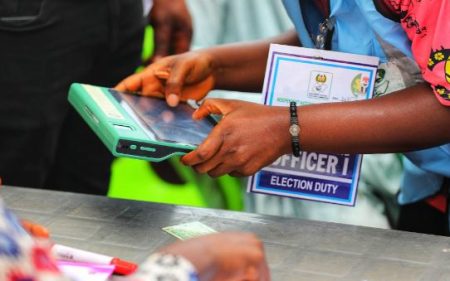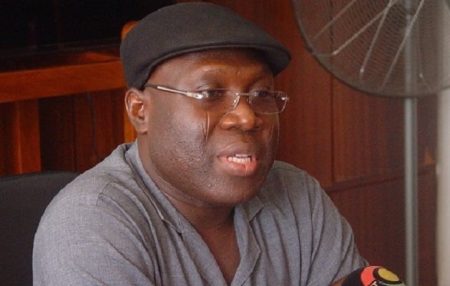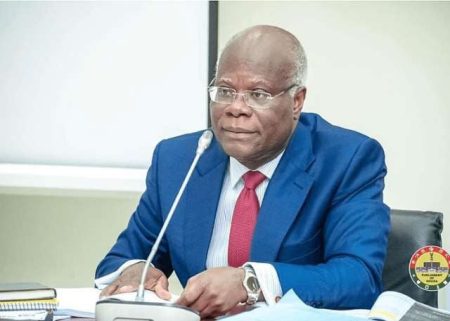The Minority Caucus in Parliament has vehemently criticized the government’s “Big Push Programme,” announced in the 2025 Mid-Year Budget Review, alleging that it is a deceptive rehash of pre-existing road projects initiated by the previous administration. They argue that the government is engaging in political dishonesty by presenting these projects as new initiatives, effectively erasing the previous government’s contributions to infrastructure development. This tactic, they claim, undermines public trust and distorts the accurate record of infrastructural progress in the country. The caucus highlighted specific road projects within the “Big Push Programme,” including the Wa–Han Road, Navrongo–Tumu Road, Sunyani Outer Ring Road, and Tema–Aflao Road, asserting that these were already in various stages of development—planning, tendering, or construction—before the current government assumed office. This rebranding, they contend, amounts to a politically motivated attempt to claim credit for work already underway.
The Minority’s critique extends beyond the issue of rebranding to encompass the feasibility of the entire program. They express deep skepticism about the government’s ability to fund these ambitious projects, given Ghana’s current fiscal challenges. The caucus points to the lack of detailed financial planning within the budget review, questioning the source of funding, project timelines, and overall implementation strategy. They argue that the government has failed to provide a credible roadmap for the “Big Push Programme,” raising concerns about its viability and potential impact on an already strained national budget. This lack of transparency, they contend, further erodes public confidence in the government’s commitment to responsible fiscal management and sustainable infrastructure development.
The Minority Caucus contends that the government’s actions amount to a cynical ploy to create the illusion of progress rather than genuinely addressing the nation’s infrastructural needs. They emphasize the importance of continuity in governance, urging the government to acknowledge and build upon the work of its predecessors instead of engaging in political posturing. By accurately representing the status of existing projects and providing clear, detailed plans for new initiatives, the government can foster greater trust and accountability. The caucus insists that a transparent and honest approach is essential to ensure that infrastructure development serves the best interests of the nation, rather than becoming a tool for political gain.
The Minority has called upon the government to revise the “Big Push Programme” to accurately reflect the origin and status of each project, giving due credit to the previous administration for its contributions. They demand transparency in funding allocation and project timelines, urging the government to provide a comprehensive implementation plan that demonstrates a realistic approach to infrastructure development within the constraints of Ghana’s fiscal realities. This call for accountability underscores the Minority’s concern that the government’s current approach prioritizes political optics over genuine progress. They emphasize the need for a data-driven, evidence-based approach to infrastructure development that prioritizes the nation’s long-term needs over short-term political gains.
The Minority’s accusation of political dishonesty centers on the government’s alleged attempt to rewrite the narrative of infrastructure development in Ghana. They argue that by presenting ongoing projects as new initiatives, the government is not only misleading the public but also attempting to erase the previous administration’s contributions. This, they believe, undermines the integrity of the political process and sets a dangerous precedent for future governments. The caucus stresses the importance of respecting past achievements and building upon them, rather than engaging in political maneuvering that distorts the historical record. They advocate for a more collaborative and less partisan approach to infrastructure development, emphasizing the need for continuity and a shared vision for national progress.
Furthermore, the lack of detailed financial planning raises serious questions about the government’s commitment to responsible fiscal management. The Minority’s demand for transparency in funding and timelines is not simply a matter of procedural correctness; it reflects a deeper concern about the potential financial implications of the “Big Push Programme.” They argue that without a clear and credible plan, the program risks becoming a financial burden on the nation, exacerbating existing fiscal challenges and potentially jeopardizing future development initiatives. The caucus emphasizes the need for a fiscally responsible approach that prioritizes sustainable development and ensures that public funds are used effectively and efficiently. They call for a comprehensive assessment of the program’s financial viability, urging the government to provide concrete evidence of its ability to fund these ambitious projects without further straining the national budget.














